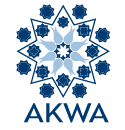Eid is a three-day public holiday and is widely celebrated throughout the country. The Eid starts with a morning Hayit-namaz (prayer). On that day, close family members gather around and they are usually visited by the other extended family members. Everyone puts on their best clothes. A big variety of delicious food and sweets are served with kora-choy (black tea). For an Uzbek, it is impossible to imagine an Uzbek dasturhon (tablecloth used as a table/place setting, usually set on the floor) without the Uzbek palov (rice, carrot, mutton or beef, spices and onions), chak-chak (fried noodles soaked in sugar syrup and garnished with nuts) alongside with the other traditional pastries such as kush-tili (brushwood cookies), bugirsok (fancy pastry balls) and urama (spiral shape pastry) just to name a few. These mouthwatering dishes are prepared by every Uzbek family.
This is the day that the dads cook (with help of the moms of course) a festive Uzbek palov which is also shared with the neighbors. Children receive lots of new clothing, toys and gifts. Young teen girls and children usually go from house to house in groups to visit the kelins (newly wedded brides) in their villages. Brides, whose heads and faces are covered with a translucent bride veil, put on their best gowns to greet the guests, doing kelin-salom (greeting of the bride) and serving sweets with tea to the children. All the girls are excited to see the new brides and admire their gowns and traditional dresses. On the rest of the Eid holiday, people visit other relatives and neighbors.
Composed by Filiz Arslan




Yorum Bırakın / Leave a Comment